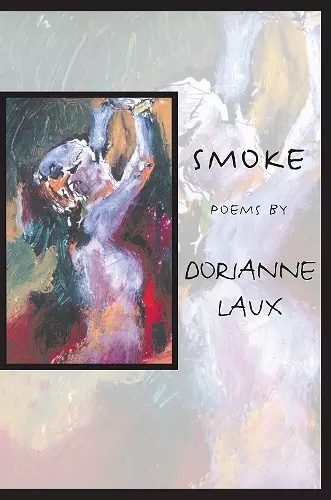Smoke
Format:Paperback
Publisher:BOA Editions, Limited
Currently unavailable, and unfortunately no date known when it will be back

Dorianne Laux's long-awaited third book of poetry follows her collection, What We Carry, a finalist for the 1994 National Book Critics Circle Award for Poetry. In Smoke, Laux revisits familiar themes of family, working class lives and the pleasures of the body in poetry that is vital and artfully crafted--poetry that "gets hard in the face of aloofness," in the words of one reviewer. In Smoke, as in her previous work, Laux weaves the warp and woof of ordinary lives into extraordinary and complex tapestries. In "The Shipfitter's Wife," a woman recalls her husband's homecoming at the end of his work day: Then I'd open his clothes and take the whole day inside me--the ship's gray sides, the miles of copper pipe, the voice of the foreman clanging off the hull's silver ribs. Spark of lead kissing metal. The clamp, the winch, the white fire of the torch, the whistle, and the long drive home. And in the title poem, Laux muses on her own guilty pleasures: Who would want to give it up, the coal a cat's eye in the dark room, no one there but you and your smoke, the window cracked to street sounds, the distant cries of living things. Alone, you are almost safe ...With her keen ear and attentive eye, Dorianne Laux offers us a universe with which we are familiar, but gives it to us fresh. Dorianne Laux is the author of two previous collections of poetry from BOA Editions, Ltd., and is co-author, with Kim Addonizio, of The Poet's Companion: A Guide to the Joys of Writing Poetry (W.W. Norton, 1997), chosen as an alternate selection by several bookclubs. Laux was the judge for the 2012 A. Poulin, Jr. Poetry Contest, and is a tenured professor in the creative writing program at the University of Oregon. Laux lives in Eugene, Oregon.
From Publishers WeeklyIt is not surprising that each of Laux's and Addonizio's third collections of poems are being published in close proximity by the same house. In 1997 the pair coauthored The Poet's Companion: A Guide to the Pleasures of Writing Poetry (Norton); both have published two previous collections with BOA; both use candid and unsentimental personal history as a prime subject matter; and both have stronger work in earlier collections. Many of Addonizio's (Jimmy & Rita) straight-talk poems in Tell Me, dedicated to Laux, depict honest characters who are in the destructive, but often unrevealing, clutches of hard-drinking, doomed relationships, and all manner of problems that subsequently arise. Some of the poems raise the question of what happens when you risk emotional honesty and it doesn't work: in "The Divorcee and Gin," she writes, "God, I love/ what you do to me at night when we're alone,/ how you wait for me to take you into me/ until I'm so confused with you I can't/ stand up anymore." The situations are often compelling, and the performancelike language lends them an air of melodrama that many be intentional, but they don't really rise above the status of well-lineated memoir. The largely domestic and narrative poems of Laux's Smoke shift between internal and external landscapes in a manner that at moments recalls early Richard Hugo: "Somewhere/ a Dumpster is ratcheted open by the claws/ of a black machine. All down the block/ something inside you opens and shuts." Her strongest work here achieves a solid music by using direct address in poems such as "Books" and "The Shipfitter's Wife." Yet the plainspoken approach, aiming at understatement, often specifies too little, letting emotional nuance go unarticulated. While both poets may work in parallel registers, the effect of each is distinct. Unfortunately, many poems in both books do not quite locate the seemingly powerful places that generate the work.
ISBN: 9781880238868
Dimensions: 228mm x 152mm x 5mm
Weight: 113g
65 pages